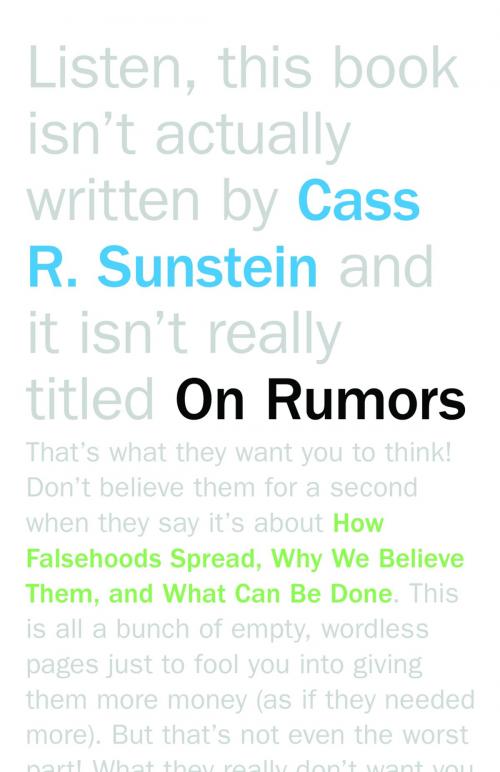On Rumors
How Falsehoods Spread, Why We Believe Them, and What Can Be Done
Nonfiction, Reference & Language, Law, Torts, Social & Cultural Studies, Political Science, Social Science| Author: | Cass R. Sunstein | ISBN: | 9781400851225 |
| Publisher: | Princeton University Press | Publication: | March 9, 2014 |
| Imprint: | Princeton University Press | Language: | English |
| Author: | Cass R. Sunstein |
| ISBN: | 9781400851225 |
| Publisher: | Princeton University Press |
| Publication: | March 9, 2014 |
| Imprint: | Princeton University Press |
| Language: | English |
Many of us are being misled. Claiming to know dark secrets about public officials, hidden causes of the current economic situation, and nefarious plans and plots, those who spread rumors know precisely what they are doing. And in the era of social media and the Internet, they know a lot about how to manipulate the mechanics of false rumors—social cascades, group polarization, and biased assimilation. They also know that the presumed correctives—publishing balanced information, issuing corrections, and trusting the marketplace of ideas—do not always work. All of us are vulnerable.
In On Rumors, Cass Sunstein uses examples from the real world and from behavioral studies to explain why certain rumors spread like wildfire, what their consequences are, and what we can do to avoid being misled. In a new afterword, he revisits his arguments in light of his time working in the Obama administration.
Many of us are being misled. Claiming to know dark secrets about public officials, hidden causes of the current economic situation, and nefarious plans and plots, those who spread rumors know precisely what they are doing. And in the era of social media and the Internet, they know a lot about how to manipulate the mechanics of false rumors—social cascades, group polarization, and biased assimilation. They also know that the presumed correctives—publishing balanced information, issuing corrections, and trusting the marketplace of ideas—do not always work. All of us are vulnerable.
In On Rumors, Cass Sunstein uses examples from the real world and from behavioral studies to explain why certain rumors spread like wildfire, what their consequences are, and what we can do to avoid being misled. In a new afterword, he revisits his arguments in light of his time working in the Obama administration.















